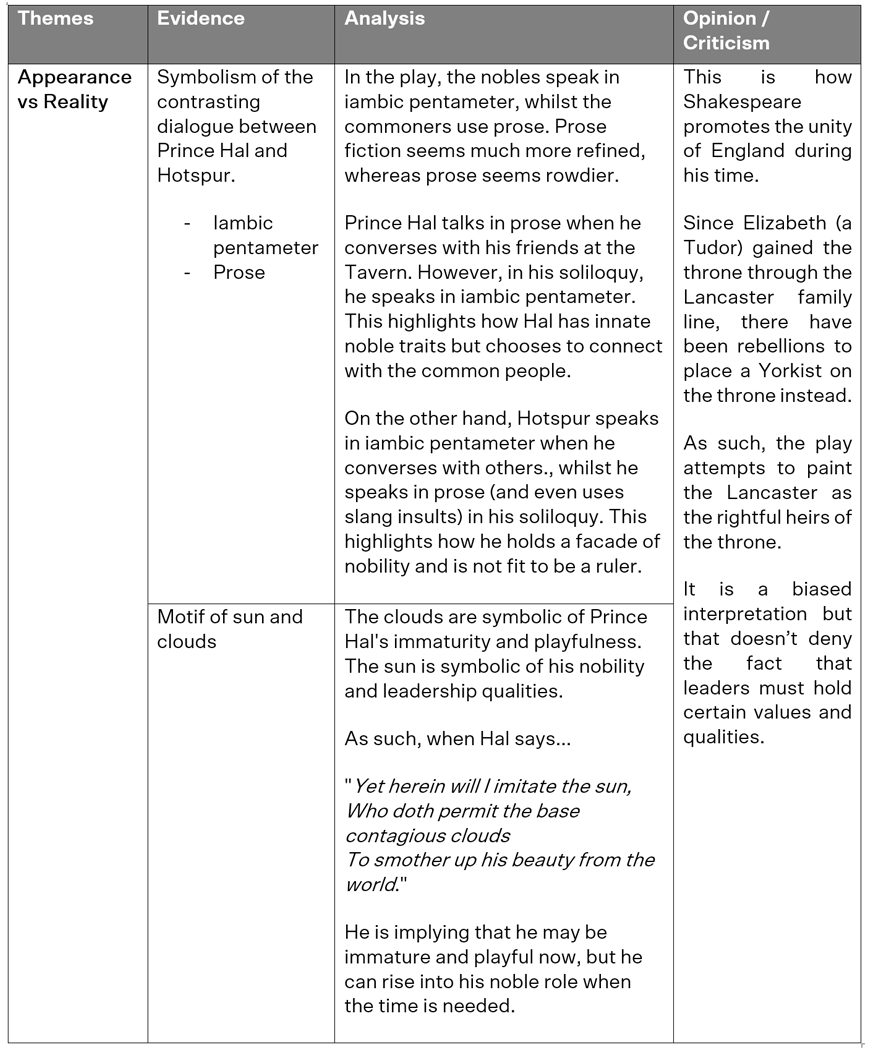

It doesn’t matter that Harold Bloom revisits some of his earlier work (notably “Shakespeare: The Invention of the Human”). His Falstaffery is made out of language: “If sack and sugar be a fault, God help the wicked! If to be old and merry be a sin, then many an old host that I know is damned: If to be fat be to be hated, then … banish plump Jack, and banish all the world.”

#King henry iv part 1 quotes torrent
He is a waterfall of words, a thundering torrent of bawdiness and beauty. Writers, dead and alive, can be recruited here, and Bloom’s book is a timely reminder of the power and possibility of words.įalstaff, because he is More Life, is also More Language. Now that the United States has a president who prefers tweets to sentences, language needs champions. He quotes it to make us read it and rejoice in it. Of course, Bloom adores Falstaff’s language.

This new manifesto will not appeal to the “gray legions of routine Shakespeare scholars.” The ones, as Bloom puts it, who prefer Hal/Henry to Falstaff, the ones on the side of authority, possibly the ones on the side of death (less messy than life), who drain the energy out of a text and offer it back as a pale imitation of itself - a counterfeit.īloom is always a pleasure to read - the language simple and direct, yet easily conveying complexity of thought. Or as Bloom glosses it: More Life Into a Time Without Boundaries.īloom is passionate in his choices. The Blessing, the sought-after, fought-over Blessing of Yahweh to his chosen ones, is the blessing of More Life. I went back to read Bloom’s “Book of J,” his commentary on those portions of the first five books of the Hebrew Bible written by “J” - a woman, Bloom proposes, and like Shakespeare, a serious creator. But to counterfeit dying when a man thereby liveth is to be no counterfeit but the true and perfect image of life indeed.” In a wonderfully comic scene, cited at length by Bloom, Falstaff will play dead like a circus dog in order to avoid being killed in Hal’s war.įalstaff: “To die is to be a counterfeit, for he is but the counterfeit of a man who hath not the life of a man. But Falstaff is the comic counterpoint to all that posturing. They look as if they’re about nation building, kingship and pride in warfare. Shakespeare was a showman, and his Henry plays played to English jingoism and mythmaking. Falstaff is on the side of life messy, silly, unplanned, all for love, life. Prince Hal, morphing into Henry V, may be a great leader, but he dumps his friends, rewrites his past, and in carnage is a self-aggrandizing commander of the Death Star. But the dangerous, subversive question of the history plays - and in Bloom’s book, we’re reading both parts of “Henry IV” as well as “Henry V” - is, what is power worth?įalstaff, excessive, loving, outrageous, overblown, but true, stands against Hal’s counterfeit. Shakespeare’s message of madness is to be found in those characters who are anti-life - whether Angelo in “Measure for Measure,” or Lady Macbeth, or Leontes in “The Winter’s Tale.” In the late plays there is a cure for madness: Lear dies sane, Leontes repents. We meet him first in “Henry IV, Part 1,” already old, lusting at life, drinking pal of the young Prince Hal, who is calculatedly slumming it in London’s East End, like any rich kid running away from the family firm. He is part pagan - the Lord of Misrule on the loose in Eastcheap, and as such his time is short. This nightwalker and whoremonger, a “muddy conger,” swinging at his old mistress Doll Tearsheet, a life-affirming liar whose truth is never to be a counterfeit.įalstaff is ancient energy thumping at volume through a temporary poundage of flesh. This whiskery swag-bellied omnivorous cornucopia of appetites, red-eyed, unbuttoned, sherry-soaked. Not that there is anything ethereal about Fat Jack. That was 75 years ago Bloom has been faithful ever since, and “Falstaff: Give Me Life” may be his last love letter to the shaping spirit of his imagination. Harold Bloom fell in love with Shakespeare’s Sir John Falstaff when, as a boy of 12, “I turned to him out of need, because I was lonely.” FALSTAFF Give Me Life By Harold Bloom 158 pp.


 0 kommentar(er)
0 kommentar(er)
